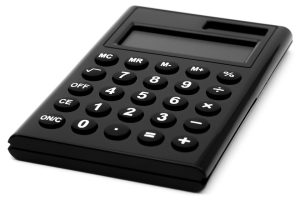Title: The Ultimate Guide to Crafting an Effective Marketing Proposal
Marketing proposals are crucial in winning clients and securing projects. However, creating an effective marketing proposal is not an easy task. It requires skills and knowledge to deliver a proposal that will impress the client and stand out from competitors.
In this article, we will show you the ultimate guide to crafting an effective marketing proposal that will help you win clients.
What is a Marketing Proposal?
A marketing proposal is a document that outlines the strategies, tactics, and costs involved in a marketing campaign. It serves as a guide for businesses to understand what they will get when they hire a marketing agency.
An effective marketing proposal should clearly define the client’s goals, target audience, and budget. It should also demonstrate the marketing agency’s expertise, results, and previous experience.
1. Research the Client and their Needs
The first step to creating an effective marketing proposal is to understand the client’s needs. You should research the client’s industry, competitors, and target audience. This will help you identify their pain points and what they want to achieve through the marketing campaign.
You can conduct research through online sources, surveys, interviews, and focus groups. The more you know about the client, the more personalized and effective your proposal will be.
2. Define Your Strategy
Based on your research, you should define a strategy that addresses the client’s needs and goals. This should include the tactics and channels you plan to use, such as social media, email marketing, SEO, PPC, and content marketing.
Your strategy should be unique and creative, showcasing your agency’s expertise and ability to deliver results. It is crucial to align your strategy with the client’s goals and budget.
3. Showcase Your Experience and Skills
Your marketing proposal should highlight your agency’s experience, skills, and results. This will demonstrate to the client that you are capable of delivering a successful marketing campaign.
You can showcase your experience through case studies, testimonials, and previous clients. Your skills can be demonstrated through your team’s qualifications, certifications, and awards.
4. Provide a Clear and Concise Budget
The budget is a crucial component of any marketing proposal. You should provide a clear and concise budget that outlines the costs involved and the expected return on investment (ROI).
Be realistic and transparent about the costs involved, and provide options for the client to choose from. You can also provide a breakdown of the costs, such as design, copywriting, and ad spend.
5. Define the Scope and Timeline
The scope and timeline of the project should be clearly defined in the marketing proposal. This will help the client understand what they are getting and when they can expect results.
The scope should include the deliverables, such as a social media calendar, blog posts, or email newsletters. The timeline should include the start and end date of the project, milestones, and deadlines.
Conclusion
Crafting an effective marketing proposal requires skills, knowledge, and creativity. You should research the client’s needs, define a unique strategy, showcase your experience, provide a clear budget, and define the scope and timeline.
By following these steps, you will be able to deliver a marketing proposal that stands out from competitors and impresses clients.
FAQs
1. How long should a marketing proposal be?
A marketing proposal should be as long as it needs to be to effectively communicate the strategy, budget, and scope. However, it should not be too long that the client loses interest or important information is buried.
2. How do I make my proposal more creative?
You can make your proposal more creative by using visuals, such as infographics or videos, and incorporating storytelling techniques. You can also use analogies and metaphors to make complex ideas easier to understand.
3. Can I use templates for my marketing proposal?
Yes, you can use templates for your marketing proposal. However, it is important to customize the template to fit the client’s needs and showcase your agency’s unique value proposition.
4. How do I handle objections from the client in my proposal?
You should anticipate objections from the client and address them in your proposal. For example, if the client has a limited budget, you can provide options that fit within their budget or explain why investing more will lead to better results.
5. How do I follow up after submitting a proposal?
You should follow up with the client after submitting a proposal. You can send a polite email or make a phone call to check if they have any questions or need clarification. Follow-ups show that you are proactive and interested in winning the project.






